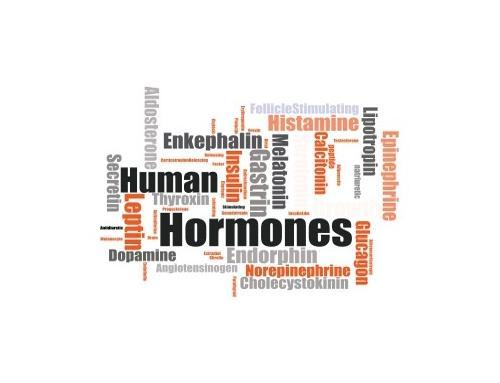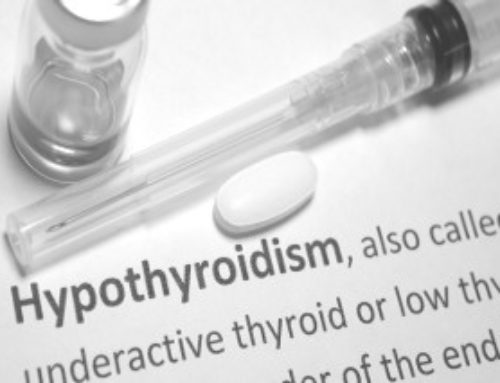 When we hear about folic acid, we might think about its role in supplementing a healthy pregnancy or preventing birth defects but its mechanism, to the average person, may be slightly unclear. How does this supplement work? Similarly, when we hear about vitamin B12, we may just think of it as one of the vitamins we were told to take daily that one time by our primary care physician. What are its benefits? We are all familiar with the names of these two B vitamins, at least in some capacity, however their benefits and mechanisms are sometimes ambiguous. Let’s review B12 and folic acid as they relate to mental health, more specifically, how they relate to the treatment of depression.
When we hear about folic acid, we might think about its role in supplementing a healthy pregnancy or preventing birth defects but its mechanism, to the average person, may be slightly unclear. How does this supplement work? Similarly, when we hear about vitamin B12, we may just think of it as one of the vitamins we were told to take daily that one time by our primary care physician. What are its benefits? We are all familiar with the names of these two B vitamins, at least in some capacity, however their benefits and mechanisms are sometimes ambiguous. Let’s review B12 and folic acid as they relate to mental health, more specifically, how they relate to the treatment of depression.
What Are They?
Each of the B vitamins (a total of 8) convert carbohydrates into glucose so the body can utilize protein and fat. B vitamins support the brain, the nervous system, the liver, hair, and skin. Folic acid/folate and vitamin B12 are two B vitamins that are necessary for both the production of red blood cells and for the utilization of iron.
Vitamin B12 is a water-soluble vitamin found in meat, fish and dairy, and can be taken in the form of a supplement. Similar to folic acid, B12 may be used in the prevention or treatment of a range of conditions and illnesses such as memory loss, heart disease, male infertility, diabetes, sleep disorders, cancer, inflammatory bowel disease and skin infections, to name a few. Vitamin B12 compliments proper brain development and function, as well as the functioning of blood cells and nerves.
Folic acid is a synthetic form of folate, a water-soluble B vitamin. While folate can be found naturally in foods like leafy greens, fruits, yeast, and meat, folic acid is generally either taken in its supplement form or added to manufactured foods such as cereals, breads, pasta and cookies. Folic acid might be used in the prevention and/or the management of conditions such as iron deficiency, liver disease, ulcerative colitis, anemia, cancer and/or alcoholism. The body uses folate/folic acid in the creation of new cells and prevention of rapid changes at a cellular level that might lead to disease.
Vitamin B12 and Depression
A vitamin B12 deficiency has been noted frequently in depressed patients in a variety of studies. Several theories have emerged surrounding the mechanism through which vitamin B12 may contribute to depression. One suggested pathway is through the myelin sheath, a fatty, protective layer in the brain which allows for the quick transmission of electrical signals between nerve cells. When it is present in normal amounts, vitamin B12 assists in building and strengthening myelin sheaths so that the communication between nerve cells continues efficiently. This process is interrupted in individuals with a vitamin B12 deficiency, causing nerve signals to slow, thus affecting mood and cognition. Another essential process in which vitamin B12 is involved, is the production of neurotransmitters, chemicals which carry emotional signals throughout the brain. B12 works with S-Adenosylmethionine (SAMe) and other compounds to regulate the production and breakdown of neurotransmitters like dopamine and serotonin. An issue arises in individuals with a vitamin B12 deficiency because they may be unable to produce these chemicals in adequate amounts, therefore disrupting the regulation of mood and emotion. Either of these processes may explain why there are correlations between vitamin B12 and depressive symptoms. Regardless, adequate levels of vitamin B12 have been associated with more positive psychological functioning in the long-term.
Varying evidence supports a link between vitamin B12 and depression. In patients who have been hospitalized for depression, studies have shown that as high as 30% of patients were deficient in vitamin B12 to a certain extent.6 Some researchers have found that B12 deficiency is common in both alcoholics and elderly people with depression2, while others suggest a B12 deficiency might be more commonly observed in patients with melancholic depressive symptoms in comparison to those with non-melancholic symptoms.7
While some relationship between vitamin B12 and depression is generally agreed upon, researchers have expanded their research to investigate the impact of vitamin B12 specifically in treatment of depression. Further, a study conducted by Hintikka et al., claims that after supplementation, the most significant improvements in mood were found in individuals with the highest blood levels of vitamin B12, while individuals whose depressive symptoms did not change demonstrated the lowest levels of vitamin B12.5
Other researchers also found that when standard treatment plans were supplemented with vitamin B12 injections, there were significant improvements in depressive symptoms. 8 Further insight was provided into the length of supplementation necessary to reap benefits in a sample of older adults who incorporated vitamin B12 into treatment for a 2 year span and also experienced improvements in symptoms.10 Combined, these findings suggest that if depression is often co-occurring with a deficiency of vitamin B12, its use may be beneficial in improving the prognosis in depressed individuals, especially in older populations. It should be noted, however, that it is generally accepted that B12 should be used as an add-on treatment to existing antidepressant treatment and/or psychotherapy rather than used as a replacement for either of these.
Folic Acid and Depression
In many ways, the relationship between folic acid and depression is similar to the relationship we previously discussed between vitamin B12 and depression. There several types of folic acid supplements. One of these include L-Methylfolate, which is of interest in explaining the mechanism of folic acid. Similar to vitamin B12, L-Methylfolate has a role in the synthesis of neurotransmitters involved with mood such as dopamine and serotonin, by crossing the blood-brain barrier. In individuals with an inadequate production of such mood stabilizing neurotransmitters may experience depressive symptoms. In this sense, L-Methylfolate may be able to supplement the deficiency, thus reducing depressed mood.
Gilbody et al., using meta-analysis of 11 different studies noted that low folate levels were associated with depressive symptoms.4 One finnish study demonstrated that men with the lowest dietary intake of folic acid were 67% more likely to be depressed than men with the highest intake.9 Some researchers argue, however, that the link can not be construed as one sided, that is as folate deficiency being a cause for depressive symptoms and instead argue that folate deficiencies are expected in depressed individuals because in fact, some of the trademark depressive symptoms include weight loss and suppressed appetite. With these symptoms, an individual might not be consuming adequate levels of folate.11 This is interesting to consider when discussing Asian populations whose diets are rich in folate and who have lower incidence of depression.3
When considering folic acid’s treatment potential for depressed individuals, some believe that folate’s natural antidepressant effects concerning neurotransmitters in the brain may be key in the effectiveness of supplementing traditional treatment with folic acid. Researchers have found that individuals with treatment resistant depression are often folate deficient, thus folic acid has shown to improve these patients’ responses to SSRIs and SNRIs.3 Further, it has been suggested that throughout antidepressant treatment, 2 mg of folic acid should be supplemented for optimal results.1
The verdict?
As with any supplement, there are competing viewpoints on the efficacy of vitamin B12 and folic acid in the treatment of depression. Most agree that the supplementation of these would not be harmful to depressed individuals. As mentioned before, it is difficult to conclude whether a deficiency in either of these causes depressive symptoms of if the relationship is more complex in terms of depressive symptoms leading to a deficiencies in folic acid or vitamin B12. Research is still being developed to investigate these questions. That being said, both vitamin B12 and folic acid have been linked to improving symptoms and/or preventing other health conditions and supporting healthy brain development, so considering their supplementation to improve depressive symptoms could be accompanied by other health benefits.
1. Abou-Saleh, & Coppen. (2006). Folic acid and the treatment of depression. Journal of Psychosomatic Research, 61(3), 285-287.
2. Bell I, Edman J., Morrow F.., Marby D., Perrone G., Kayne H., et al. Brief communication Vitamin B1, B2, and B6 augmentation of tricyclic antidepressant treatment in geriatric depression with cognitive dysfunction. J. Am. Coll. Nutr., 11 (1992), pp. 159-163
3. Coppen, A., & Bolander-Gouaille, C. (2005). Treatment of depression: Time to consider folic acid and vitamin B12. Journal of Psychopharmacology, 19(1), 59-65.
4. Gilbody, S., Lightfoot, T., & Sheldon, T. (2007). Is low folate a risk factor for depression? A meta-analysis and exploration of heterogeneity. Journal of Epidemiology and Community Health, 61(7), 631.
5. Hintikka, J., Tolmunen, T., Tanskanen, A., & Viinamäki, H. (2003). High vitamin B12 level and good treatment outcome may be associated in major depressive disorder. BMC Psychiatry, 3, 17.
6. Hutto, B. (1997). Folate and cobalamin in psychiatric illness. Comprehensive Psychiatry, 38(6), 305-314.
7. Seppälä, Koponen, Kautiainen, Eriksson, Kampman, Leiviskä, . . . Vanhala. (2013). Association between vitamin b 12 levels and melancholic depressive symptoms: A Finnish population-based study. BMC Psychiatry, 13, 145.
8. Syed, E., Wasay, M., & Awan, S. (2013). Vitamin B12 supplementation in treating major depressive disorder: A randomized controlled trial. The Open Neurology Journal, 7, 44-8.
9. Tolmunen, Tommi, Voutilainen, Sari, Hintikka, Jukka, Rissanen, Tiina, Tanskanen, Antti, Viinamaki, Heimo, . . . Salonen, Jukka T. (2003). Dietary Folate and Depressive Symptoms Are Associated in Middle-Aged Finnish Men. Journal of Nutrition, 133(10), 3233-3236.
10. Walker, J., Batterham, P., Mackinnon, A., Jorm, A., Hickie, I., Fenech, M., . . . Christensen, H. (2012). Oral folic acid and vitamin B-12 supplementation to prevent cognitive decline in community-dwelling older adults with depressive symptoms–the Beyond Ageing Project: A randomized controlled trial. The American Journal of Clinical Nutrition, 95(1), 194-203.
11. Young, S. (2007). Folate and depression–a neglected problem. Journal of Psychiatry & Neuroscience : JPN, 32(2), 80-2.
by Callie Patterson
Callie Patterson is a graduate student pursuing a degree in psychological sciences at Northern Arizona University.
The content on this website is not intended to be a substitute for professional medical advice, diagnosis, or treatment. Always seek the advice of your physician or other qualified health provider with any questions you may have regarding a medical condition.





